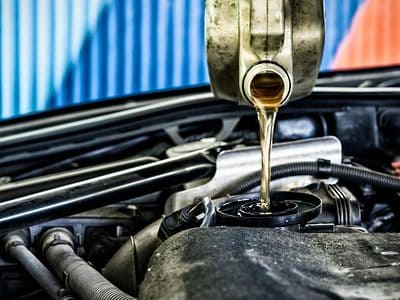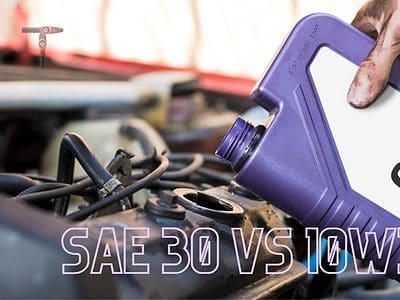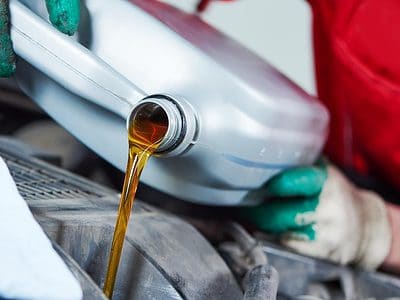
Should you use regular oil, or should you use high-mileage oil? What does high mileage even mean? Should you use high mileage oil in your car—if yes, when?
There are so many questions concerning high mileage oil and so few answers.
This article will compare high mileage oil vs regular oil and answer several other questions concerning the former so that you can make better-informed decisions.
What Does ‘High Mileage’ mean?
A high mileage car can be defined as a car with above-average mileage for its age.
For any regular car, traveling for about 1000 miles a month or 12,000 miles yearly is considered average use. When the traveling average of your car exceeds the norm, it is deemed a high mileage car. An example would be a three-year-old car that has covered 60,000 miles.
That said, the term “high mileage” is usually reserved for cars that have traveled 75,000 miles or more. Most people avoid cars with high mileage since typical powertrain warranties usually last about 100,000 miles.
While you could use high mileage oil in a younger car without any negative effect, the issues high mileage oil tackles usually don’t surface in vehicles with less than 75,000 mileage.
High Mileage Oil vs Regular Oil: What’s the Difference?
What distinguishes high mileage oils from their regular counterparts is their combination of additives. The additive package in their formulations allows them to better protect older, worn-out engines.
Regular oils will still protect your engine, but high mileage oils are an upgrade as they are formulated with unique, seal-compatible conditioners, antioxidants, detergents, and more.
These help it combat the problems that high mileage vehicles suffer as they age—broken seals, oil leaks, and oil burn-off—and extend equipment life and boost performance.
Which Vehicles Should Use High Mileage Oil?
If your vehicle has a mileage of about 75,000 or more, you should consider switching from regular to high mileage oil.
If your vehicle has been properly maintained, high mileage oil will help to diminish age-related engine wear. But you should keep expectations realistic.
High mileage oil is not going to fix mechanical problems. So, if you notice a blow-by, power loss, cylinder slap, or strange noises in your car, get it checked by an auto repair shop.
Is High Mileage Oil Worth It?
High mileage oils usually cost more than your regular oils. But they are worth the extra cash for cars that have covered enormous ground since production.
For starters, high-mileage oils contain conditioners that can rejuvenate seals to reduce oil leaks. Oil leaks are commonplace in high-mileage engines, as the internal seals and gaskets become fragile and shrink with age.
The result is visible oil streaks on lower engine parts or oil stains on your garage floor or pavement. Oil can also leak into the combustion chambers, resulting in oil burn. And, of course, your oil level will drop below the full mark faster.
But high-mileage oils go beyond rejuvenating seals and gaskets.
They usually contain more detergents to clean out the dirt inside your car’s engine and other additives that diminish wear on moving parts. Plus, the extra thickness, especially synthetic oils, also lubricates engine parts for longer.
Should I Use High-Mileage Oil in My New Car?
High mileage oils are recommended for older cars, but the opposite is true for newer ones. It will not harm your vehicle by any means, but it wouldn’t benefit it in any way.
For a new car, you always want to follow the advice in your owner’s manual, at least until the warranty expires. And no manufacturer will advise a high mileage oil on a new car.
Keep Your Car Engine Firing on All Cylinders
Even with lubricants, there’s no one-size-fits-all solution, and high-mileage oils are no different. Different oil brands and types contain slightly different formulations. Whichever you get, your older engine will likely benefit from it.
However, the best thing you can do to keep your car engine firing properly for a long time is to maintain it. Perform regular oil checks and changes when due, check your engine seals, and use the best filters.
FAQs
Can High-Mileage Oil Damage an Engine?
High-mileage oil does not damage a healthy engine. If anything, it helps rejuvenate high-mileage vehicles.
Should I Get Conventional or High-Mileage Oil?
Generally, you should get conventional oil if your car is below 75,000 miles and under warranty. However, if its mileage is more than 75,000 miles and you’re beyond the manufacturer’s warranty, you should consider a high-mileage oil. Of course, your older car will still run well with regular engine oil.
Is High-Mileage Oil Thicker Than Regular Oil?
High-mileage oils are thicker than regular oil. They also contain durable viscosity modifiers that won’t reduce over time. Hence, they stay thicker for longer—something regular oils aren’t really capable of.
When Should I Start Using High-Mileage Oil?
You can start using high-mileage oil as soon as your car clocks 75,000 miles, provided it’s not under warranty. Otherwise, stick to the manufacturer’s requirements.
















